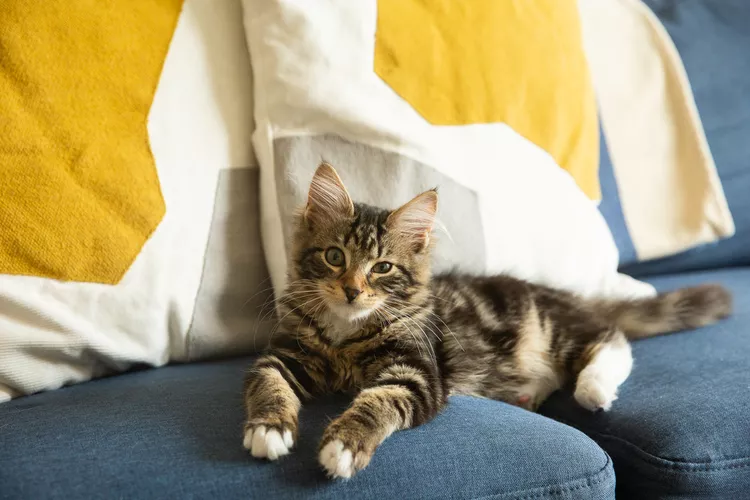
Your new kitten will go through some notable changes from six months to one year of age. She will be more confident and comfortable to freely explore her environment and voluntarily play with other existing pets and you.
Your kitten will also start growing into her features and begin to look more like an adult cat. However, that doesn't mean she is done growing physically or mentally, so be sure to continue positively reinforcing good behaviors. You'll also want to consider her diet and the timing for gradually transitioning into adult cat food.
At six months of age, your kitten may look like a little adult, but that doesn't mean it has reached adulthood. The basic rule of thumb is that the average-sized cat will gain about one pound per month, so at six months of age, your kitten should weigh about six pounds with a lanky torso and legs. It may seem a little disproportionate, but your kitten will soon grow into its long legs and body, just like a human preteen does.
At this age, your kitten should also have received all of its vaccinations and you should be thinking about scheduling its spay or neuter. While not yet fully grown in size, sexual maturity can occur at six months of age. To avoid having a male kitten that sprays urine to mark its territory or a female kitten that goes into heat, you'll want to get your male kitten neutered or your female kitten spayed as soon as possible. These are routine surgeries that will be performed by your veterinarian.
Baby teeth may still be present, but some kittens will lose them all by the time they are six months old. Some veterinarians will recommend extracting any baby teeth that remain in your kitten's mouth when it gets spayed or neutered.
Still very much a baby, but growing into a young adolescent, your kitten will start to sleep more during the day just like an adult cat does. Expect more than half the day to be filled with cat naps, so try to have a comfy cat bed in your kitten's favorite spot.
When your kitten isn't sleeping, it will still be exploring and playing, but its confidence level will be higher than when it was just a toddler. It will also be more coordinated as a young adolescent and will demonstrate just how social it wants to be with you. Socialization and bonding time have always been important to your growing kitten, but at this age, your hard work will have finally paid off, and you may see your kitten starting to snuggle with you voluntarily.
If you have not already had your female kitten spayed, and it has spent time with an intact male cat, then there is a chance that your kitten is pregnant. Cats can get pregnant as young as six months of age, so it's very important to get your female kitten spayed if you don't want more kittens.
Your kitten may start to play more with other pets in your house since its confidence is at an all-time high. Supervision is still a necessity though, as larger pets like dogs can still do damage to an eight-month-old kitten.
Be aware that your kitten is now large enough to attempt counter surfing, it may push items around or off of tables out of curiosity, and it will test the limits of both human and inanimate objects. Setting boundaries and being consistent in any training with your kitten is important. Kittens do not respond to force, so if you are trying to train it to do or not do something, you'll need to use positive reinforcement and patience to get the outcome you want. Verbal praise and tasty cat treats can go a long way in cat training.
By nine months of age, your adolescent kitten is almost full grown and all of its baby teeth should be gone. Teething should cease, but your kitten may still discover how fun it is to chew on things. Monitor your kitten's biting and chewing behaviors closely and make sure they do not get out of hand. Your kitten should never bite a person or other pet unwarranted. If aggressive behaviors start to show, then be sure to nip them in the bud right away and start training your kitten not to bite.
Making the switch from kitten to adult food can occur at any time now. This transition should be a slow one, though, and careful thought should go into which adult food you want to feed your kitten.
Be sure to choose a high-quality, meat-based adult cat food for your kitten. Your veterinarian may have specific brand recommendations for you, but otherwise, look for a major brand that is formulated for adult cats and has the AAFCO seal on the package. These things all indicate that the food is a good choice. Major food brands have quality control, customer service, veterinarians on staff, and high-quality ingredients. Generic or store-brand foods may have lower-quality ingredients and do not provide proper nutrition to your kitten. The food you choose should also list meat as the first ingredient since cats are carnivores.
Slowly mix the remaining kitten food you have with the new adult cat food. Allow there to eventually be more adult cat food then there is kitten food. This transition should take at least a week to decrease the likelihood of dietary-induced diarrhea and during this time, you should also monitor your kitten's appetite to ensure it's still eating the adult food and not just picking out the kitten food.
Almost a year of growth has occurred already, and now, your kitten is just about fully grown. It is sexually mature, eating adult cat food, has received all of its vaccinations, and you are consistently working on its social skills and training. It is equivalent to a teenage human at this point, so while it still has some mental maturing to do, it looks like an adult cat.
At one year of age, most people will now consider your kitten an adult cat. Most cats are full-grown by one year of age, so from here on out, your cat will simply grow mentally. Learning and training never end. Your cat will always explore, make decisions, play, and develop both good and bad habits, and it is up to you to steer it in the direction you would like it to grow. Remember to always use gentle and positive training methods and a good scratch behind the ears can go a long way!
By six months, your kitten will have its adult teeth; this is the most certain way to know how old your kitten is. (They start emerging in the third or fourth month, near their kitten/milk teeth, so the inside of their mouths look a little like a scene from Jaws when it's happening!)
Kittens are litter trained long before they are six months old. Worried yours won't be? Carry it to the box, and swish its paw in the litter. Voila! Your cat has been trained.
Slowly! Start by keeping them apart, but gradually introducing them by scent: rub a t-shirt on each, then share with the other. The kitten should be kept in its own room, if possible, or the bathroom. Let them see each other through a slightly ajar door. If there's hissing, that's normal, just close the door and try again tomorrow. If they seem to tolerate each other, gradually open the door further. If not, a pheromone plug-in like Feliway might help ease the tension. Worst case scenario, they will come to tolerate each other. Best case, they will become friends.

Cute Pictures & Facts About Calico Cats & Kittens
Learn fascinating facts about calico cats, including photos, the genetics behind this color combination, and common folklore and traditions.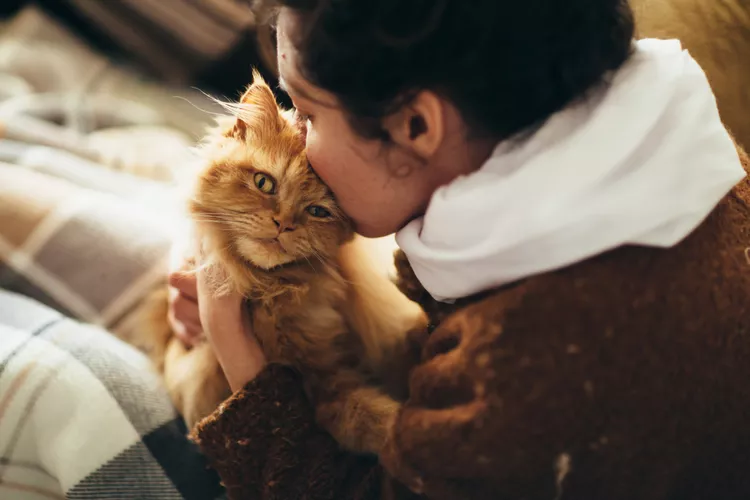
How to Prevent Cat Separation Anxiety During Vacations
Discover why cats develop litter box problems and cat behavior problems when you go on vacation and what you can do about it to help them.
Cat Behavior Changes That Might Mean Something's Wrong
Cats' behavioral changes may indicate problems—or they may mean nothing at all. Explore causes of odd behavior and what to do about them.
Lhasa Apso: Dog Breed Characteristics & Care
The Lhasa apso is an ancient breed from Tibet that was bred to be a watchdog. Learn about its history, health, exercise needs, and more.
Reasons Why Dogs Run Away and How to Stop It
Dogs can escape, especially if they’re bored and not properly contained. Here are some techniques for stopping your dog from running away.
Can Dogs Get Depression? How to Help Your Sad Dog
Can dogs get depression? Learn about the signs of depression in dogs and find out how to help your sad dog.
How to Stop Aggression in Dogs
Dog aggression can be a serious behavior issue for pet owners. Learn how to stop aggression in dogs before someone gets hurt.
How to Stop Your Dog From Growling
A growling dog can soon become even more aggressive. Reduce the noise and potential for a dangerous situation with some of these techniques.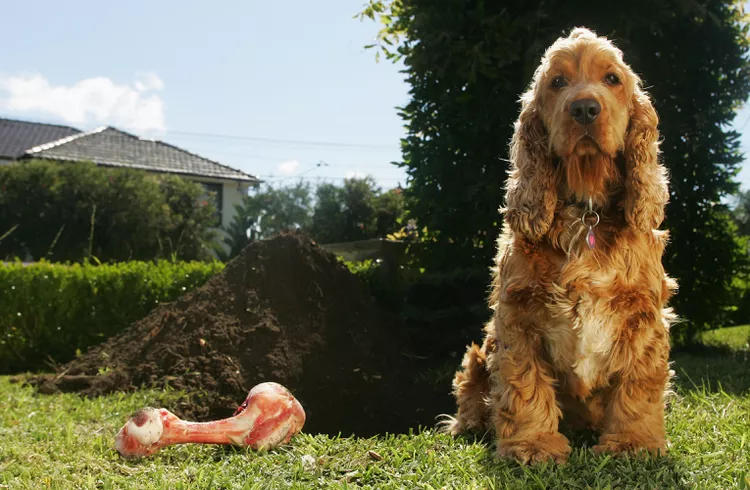
Why Do Dogs Dig Holes? How to Stop Your Dog from Relandscaping Your Yard
Dogs have been digging holes for centuries and for many reasons. Whether they’re bored or want to cool off in the dirt, here are the top reasons why dogs dig holes.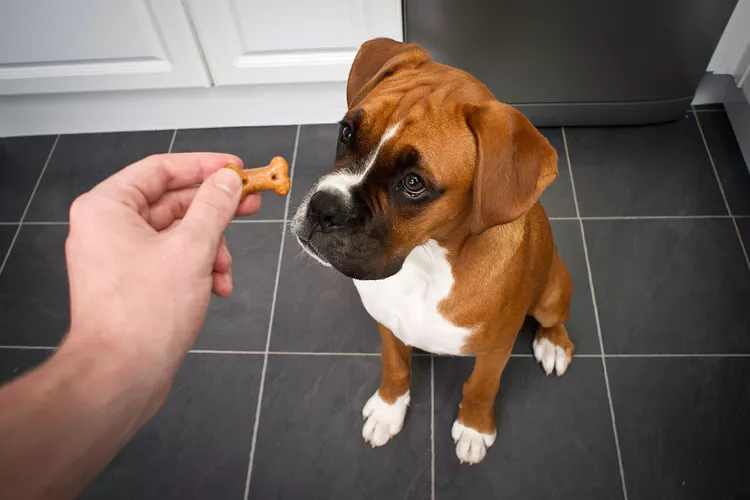
Dog Treat Varieties
Learn about the different types of dog treats on the market and decide which are best for your dog.
Can Dogs Eat Asparagus?
Dogs can eat asparagus, provided the vegetable is cooked plain and cut up for them. Seasonings, salt, and butter make it unhealthy for dogs.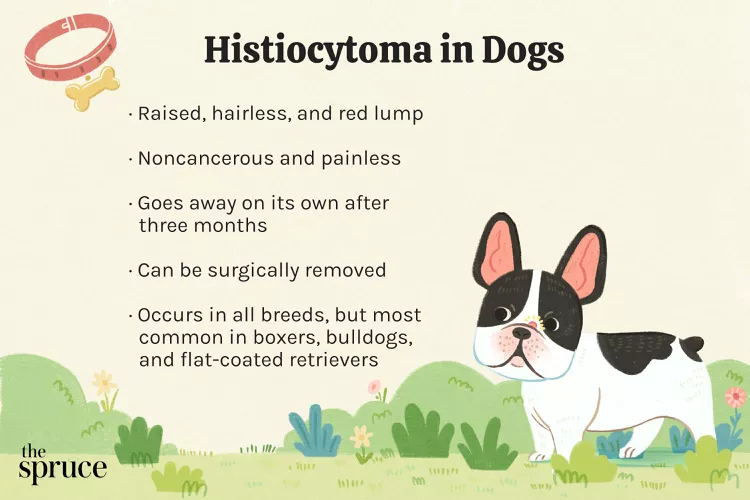
Histiocytomas in Dogs
A histiocytoma is a type of benign (non-cancerous) skin lump that usually affects young dogs. Learn the causes, treatment, and prevention.
Why Is My Dog’s Eye Swollen?
If your dog's eye is swollen, she may need veterinary attention. The inflammation could be caused by allergies, an injury, or even a tumor.
Common Bugs and Parasites Found on and Inside Dogs
Learn about common types of parasites in dogs. Find out how to treat and prevent parasites to keep your dog, your family, and yourself safe.
Exploring the Different Types of Pet-Friendly Beaches
Are you looking for pet-friendly beaches? Learn about the different types of pet-friendly beaches, their locations, and tips for visiting them with your pet.
10 Obscure, Little-known Canine Facts in Honor of National Dog Day
With National Dog Day upon us, it's time to celebrate everything about our favorite pets—even the weirder stuff. Here are 10 obscure facts about dogs you probably didn't know.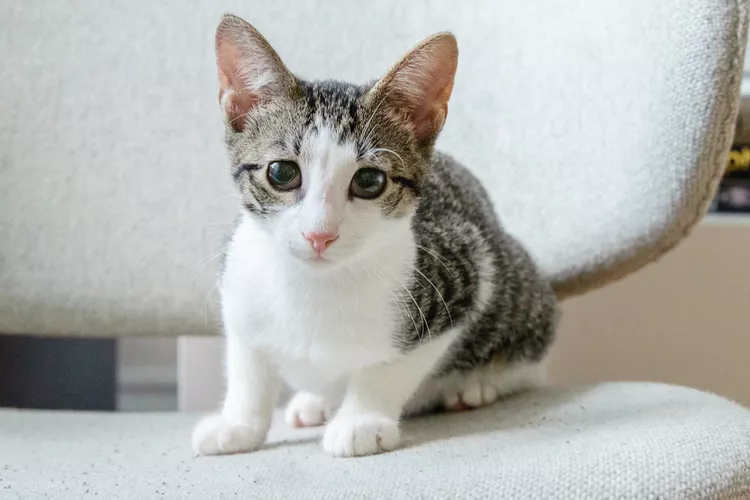
Kitten Development From 3 to 6 Months Old
Kittens grow and change a lot during their first year. Find out what happens between the ages of three months and six months old.
95 Siamese Cat Names
Our list of Siamese cat names has diverse and fun options to help you choose the ideal moniker for your elegant and lovable feline companion.
What to Buy for Your New Cat: A List of Essentials
Before you bring your new cat or kitten home, there are a number of things to collect or buy so your cat will feel welcomed like a family member.
The 6 Best Cat Nail Clippers of 2024 for a Safe Trim
Clipping your cat's nails can save your furniture and keep your kitty comfortable. We asked veterinarians for their cat nail clipper recommendations.